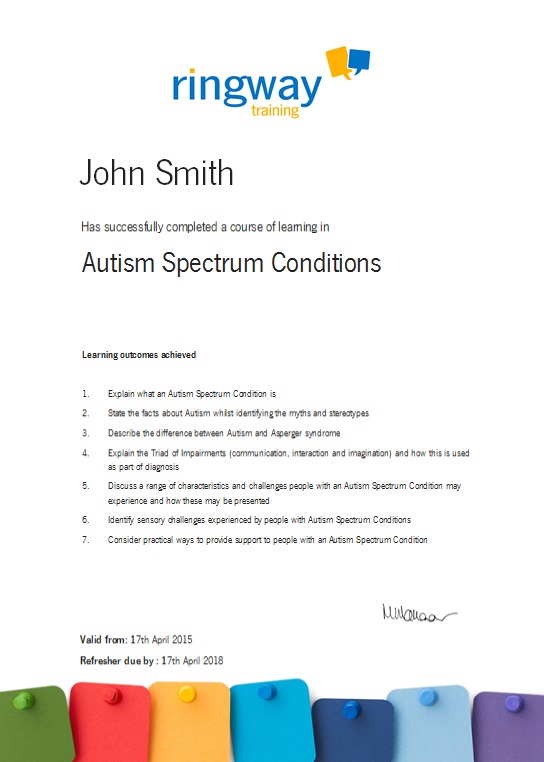Course Summary
Radicalisation is a complex, controversial and serious worldwide issue which is described by the UK Youth Offending Team as a process of ‘personal and political transformation’.
In recent years, advances in communication methods (including social media) and changing models of the radiation process and methods of acts of terrorism, mean that more people are vulnerable to the influences of radicalisation than ever before and it is essential for support teams to know what radicalisation is and to recognise and act on potential early indicators.
This training course confirms what radicalisation is and how vulnerable people are influenced using different factors and ideologies, describes the different theories and models of radicalisation and explains the meaning of ‘pathways to radicalisation’.
This training course confirms the meaning and purpose of the Prevent Duty and Channel Programme, clarifies the requirements which this place on support organisations to comply and defines the action to take if concerns are raised. This is an accredited course.
Course Learning Outcomes
Review the learning objectives below. Expand each aim to view the detailed criteria this course covers.
- 1.1Define the meaning of the terms: Radicalisation, Terrorism, Extremism, Violent Extremism
- 2.1Identify historical and current occurrences of acts of terrorism
- 2.2Explain what ‘push’ and ‘pull’ factors are in relation to radicalisation and terrorism
- 2.3Compare examples of both ‘push’ and ‘pull’ influences
- 2.4Describe misconceptions relating to poverty and mental health in relation to radicalised behaviours and influences
- 2.5Describe possible early indicators that a person may be experiencing a stage or process of radicalisation
- 3.1
- 3.1Explain the meaning of ‘Individual Pathways into Radicalisation’
- 3.2Summarise the following ‘Pathways into Radicalisation: personal grievance, group grievance, slippery slope, love. risk and status and unfreezing
- 3.3Evaluate Biological, Physiological and Societal theories of radicalisation
- 3.4Explain the ‘Trafficking Model’ of radicalisation
- 3.5Explain the ‘Prevent Pyramid’ model of radicalisation
- 3.6Explain the ‘Staircase to Terrorism’ model of radicalisation
- 3.7Describe the process of radicalisation from 'Early Involvement' to 'Operationally Active'
- 4.1Describe the principles of the UK Prevent Strategy
- 4.2Summarise the purpose and legislative powers of the Counter Terrorism and Security Act (2015)
- 4.3Explain organisational requirements and procedures in relation to implementing the Prevent Strategy
- 4.4Explain local authority requirements and procedures in relation to implementing the Prevent Strategy
- 4.5Describe the purpose of the UK Channel Programme
- 4.6Define the process which organisations must follow to raise concerns through the UK Channel Programme
- 4.7Describe ways to provide support to a young person who is vulnerable to the risk of radicalisation
- 4.8Confirm the importance of ‘joined up working’ with local authorities
Who is this course for?
This Radicalisation training course is designed for professionals working with children and young people including support teams, education professionals and foster carers. This course is also suitable for people working with young vulnerable adults.
Duration
1 day course - we can be flexible on start and finish times to suit your needs such as school run friendly times.
Availability
This Radicalisation and Extremism course is offered in two delivery formats:
- Remote Online: Led by a live tutor via Zoom or Microsoft Teams, allowing participants to join remotely. (Also known as virtual classroom training)
- Face-to-Face: Delivered in person at your location or a venue you arrange. (Also referred to as on-site training)
View a comparison of Remote and in-person face to face training .
Complete our quick enquiry form for a price and available dates.
Certification
Each learner completing this course will receive a digital (PDF) certificate of learning.
Accreditation
The course contents are accredited by the Open College Network (OCN) Credit4Learning as a Level 3 course.
Choose the learning environment that works best for you: our expert-led training is offered in two convenient formats - remote tutor led online or in person face to face.
Flexible start and finish times to suit you. Contact us for available dates.
The course contents are accredited by the Open College Network (OCN) Credit4Learning as a Level 3 course.
Get a Price or more information...
Just fill in this quick form and we will email you an all inclusive price, don't worry we will never add you to any marketing lists - promise. If you want more information first thats great - just get in touch
Clear pricing
We ask for location (for face to face training) and approximate numbers because we include any expenses in the quotes we give so you get one clear price - no surprise added extras
More Information?
If you have any questions, want more information or interested in a series of courses please contact us
Contact Us
